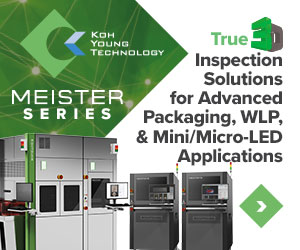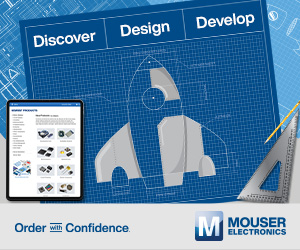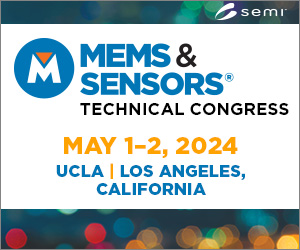Dr. Jennie Hwang to address Solder Joint Reliability at SMTA International on September 23, Chicago
Gain Practical Knowledge on “Solder Joint Reliability – Principles and Practice” at SMTA International.
Solder joint reliability plays a critical role in the reliability of the entire spectrum of end-use electronic products from consumer to industrial, from computing to IoT, from medical to military applications. In lead-free electronics, solder joint reliability becomes increasingly important to the manufacture and performance of the chip level, package level and board level interconnections. Understanding the essential factors behind solder joint reliability is a necessity to designing and manufacturing reliable products.
On Monday, September 23, Dr Jennie S. Hwang leverages her decades of comprehensive real-world experiences and deep knowledge, having solved most challenging reliability problems, to address solder joint reliability by integrating scientific fundamentals with practical requirements. Join your industry colleagues to hear the true authority in solder joint reliability at SMTA International. Dr. Hwang will discuss relevant and crucial aspects of solder joint reliability at PDC 09 – “Solder Joint Reliability – Principles and Applications.” Attendees are encouraged to bring their own selected systems for deliberation.
Register: https://www.smta.org/smtai/register.cfm
PDC 09 Solder Joint Reliability – Principles and Applications 8:30am — 12:00pm
Topics Covered
- Premise – critical players, definition of reliability, solder joint thermo-mechanical degradation – fatigue and creep interaction;
Solder joint failures modes – interfacial, near-interfacial, bulk, inter-phase, intra-phase, voids-induced, others; - Solder joint failure mechanisms – ductile, brittle, ductile-brittle transition fracture;
- Solder joint strengthening metallurgy;
- Illustration of microstructure evolution vs. strengthening in Sn Cu+x,y,z and SnAgCu+x,y,z systems;
- Solder joint voids vs. reliability – causes, effects, criteria;
- Solder joint surface-crack –causes, effects;
- Distinctions and commonalties between Pb-free and SnPb solder joints;
- Thermal cycling conditions – effects on test results and test results interpretation;
- Testing solder joint reliability – discriminating tests and discerning parameters;
- Life-prediction model vs. reliability;
- Solder joint performance in harsh environments;
- What alloys are on the horizon and what impact will be on reliability;
- Relative reliability ranking among commercially available solder systems;
- Best practices and competitive manufacturing;
- Ultimate reliability.
About the Speaker:
Dr. Hwang, a pioneer and long-standing leader in lead-free electronics, brings her 35+ years SMT manufacturing experience coupled with her sustained 25+ years lead-free R&D and hands-on production implementation to the courses. She has been a major contributor to the implementation of Surface Mount manufacturing since its inception through hands-on production and as an advisor to OEMs, EMS and U.S. Dept. of Defense. She has provided solutions to many challenging problems, ranging from production yield to field failure diagnosis to most challenging reliability issues. Her work covers both commercial and military applications.
Her long list of clients ranges from many Fortune 100 companies to private boutique manufacturers. Her recent assignment has led her client to achieve a higher than 99.9% production first-pass yield from below 50%. She has also solved the reportedly toughest reliability issues in high reliability products, as well as eliminated production defects for low-cost consumer products through process optimization and materials improvements.
Dr. Hwang’s SMT manufacturing experiences and problem-solving track record culminate in the publication of the very first book on the subject of ‘SMT Solder Paste – Technology and Application”, and the books entitled: “Modern Solder Technology for Competitive Electronics Manufacturing” and “IC Ball Grid Array & Fine Pitch Peripheral Interconnections.” Her sustained leadership in lead-free R&D and hands-on production implementation are reflected in her authoring the groundbreaking books on the subject of lead-free technology and manufacturing, respectively, entitled: “Environment-Friendly Electronics—Lead Free Technology” and “Implementation of Lead-free electronics manufacturing”.
She holds patents and has 500+ publications to her credit, including the sole authorship of several internationally-used textbooks. Her books, columns, and publications have been widely cited worldwide. Dr. Hwang has been a frequent keynote/featured speaker at worldwide events (United States Patent and Trademark Office, Federal Women’s Program, university commencement speech, numerous industry events). Over the years, she has lectured to hundreds of thousands of professionals and researchers in professional development courses. As a columnist for the SMT magazine for the last 30+ years, she addresses the current issues, providing solutions and worldviews.
Additionally, she has served on the Board of NYSE Fortune 500 companies and on various civic, government and university boards and committees, including U.S. Commerce Dept. – Export Council; U.S. Defense Dept. – Globalization Committee, Forecasting Future Disruptive Technologies Committee, U.S. Army Research Panel; and has chaired the National Laboratories Assessment Panel – NIST-EEEL and the Assessment Panel on U.S. Army Research Laboratory. She serves on the Board of Army Science and Technology, the Laboratory Assessment Board and the National Materials and Manufacturing Board and chairs the Army Research Laboratory Technical Assessment Board and chairs the Assessment Board of Army Engineering Centers. She is a reviewer of various government programs and is prolific writer and speaker on the topics of trade, business, education and social agenda.
Among her many awards and honors are citations of recognition and achievement by the U.S. Congress, Honorary Doctoral degree, induction into WITI International Hall of Fame, named “R&D Star-to-Watch” (Industry Week); YWCA Women of Achievement Award; election to the National Academy of Engineering. She was featured as one of the ten luminaries in the inaugural volume: “Road to Scientific Success – Inspiring Life Stories of Prominent Researchers”, published by World Scientific Publications.
Her formal education includes four academic degrees (Ph.D. M.S., M.S., B.S. in Materials Science and Engineering, Physical Chemistry, Liquid Crystals Science, Chemistry, respectively), Harvard Business School Executive Program and Columbia University Business School Corporate Governance program. She has held various senior executive positions with Lockheed Martin Corp., Hanson PLC (SCM Corp,) Sherwin Williams Co, and CEO of International Electronic Materials Corp. She is currently a principal of H-Technologies Group, providing business, technology and manufacturing solutions. She is also an invited distinguished adj. Professor of Engineering School of Case Western Reserve University, and serves on the University’s Board of Trustees.
She has established endowment funds at her alma maters, dedicating to interdisciplinary education and to acquiring global exposures. The Dr. Jennie S. Hwang YWCA award, now for 19 years running, is established in her honor, recognizing outstanding women students pursuing a STEM discipline.
Her books and publications are well received worldwide, which have been the widely adopted textbooks throughout the global industry over three decades.
- (ISBN-0-07-143048-2) “Lead-free Implementation: A Guide to Manufacturing” McGraw-Hill, New York, 2005;
- (ISBN: 9780901150400) “Environment-Friendly Electronics—Lead Free Technology”, Electrochemical Publications, LTD, Great Britain, 2001;
- (ISBN-0-07-031749-3) “Modern Solder Technology for Competitive Electronics Manufacturing“, McGraw-Hill, New York, 1996;
- (ISBN-0-90-115029-0)”IC Ball Grid Array & Fine Pitch Peripheral Interconnections”, Electrochemical Publications, LTD, Great Britain, 1995;
- In Japanese, “Solder Paste: Technology and Applications for Surface Mount, Hybrid Circuits, and IC Component Manufacturing“, Industrial Research, Japan 1990;
- (ISBN-0442-2075-49) “Solder Paste: Technology and Applications for Surface Mount, Hybrid Circuits, and IC Component Manufacturing“, Van Norstrand Reinhold, New York, 1988, currently by Springer Science & Business Media, LLC. http://www.springer.com/us/book/9789401160520










